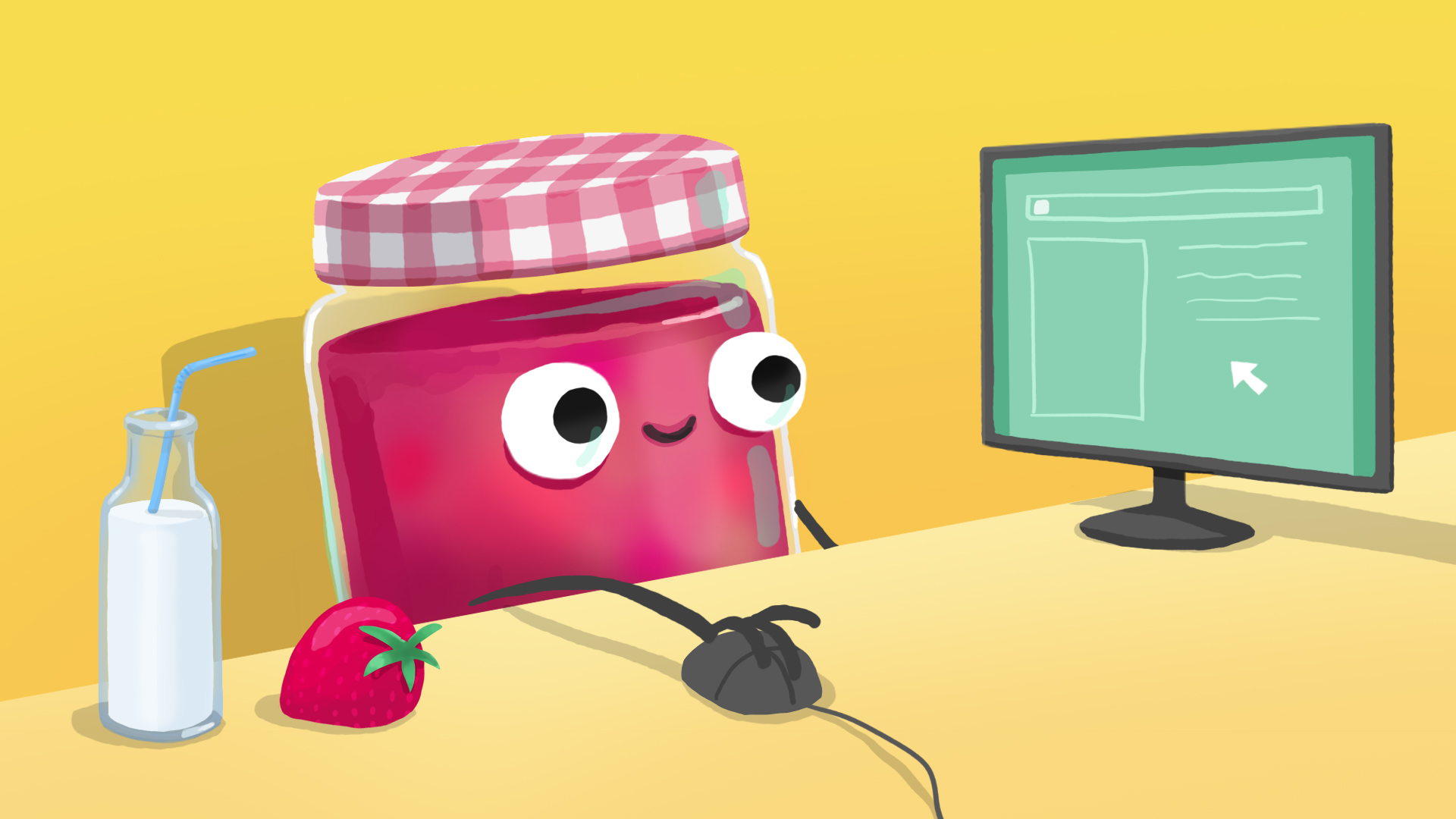
Complete a successful game jam
Tutorial
Beginner
+10XP
15 mins
632
Unity Technologies

Game jams test the skills of every creator; however, the skills being tested aren’t exclusive to game-building. In this tutorial you’ll explore effective time management and some tips to support your wellbeing.
By the end of this tutorial, you will be able to do the following:
- Apply appropriate time management techniques to your game jam work.
- Explain the importance of respectful collaboration strategies.
- Explain the importance of attention to wellbeing during game jams.
1. Overview
Game jams should always be fun, but the experience can become overwhelming if you’re not organized or taking care of yourself. Time management tools and a thoughtful approach to wellbeing and collaboration can help you to stay focused on your goals and reduce stress.
By the end of this tutorial, you'll be able to do the following:
- Apply appropriate time management techniques to your game jam work.
- Explain the importance of respectful collaboration strategies.
- Explain the importance of attention to wellbeing during game jams.
2. Project manage your game jam experience
It’s easy to become overwhelmed during a game jam if you have no structure to your game development process. One way to provide structure is to apply project management approaches to your work, whether you’re completing the jam alone or in a team.
Game jam structure
Everyone’s game development cycle is different, but there’s a general list of features and processes that you should aim to include in your own design journey. To best prepare before a game jam, it’s a good idea to make a standard checklist of tasks you expect to complete during the event.
If you don’t know where to start, take a moment to review the example checklist below:
- Develop a concept based on the game jam theme.
- Gather premade assets, codes, and features that you might need.
- Make new assets, codes, features, and UI as required.
- Prototype your game.
- Make necessary changes and revisions to your game.
- Test your game as you iterate.
- Build your game and submit it at the end of the jam.
You might want to add your own tasks to this list or create a new one based on your own experience.
Choose a project management tool
After entering a jam, you’ll soon realize how quickly time disappears — a project management tool can be useful to help you keep track of everything that you need to do. Go through the list of project management tools below and consider which one best suits your needs:
- Trello: A free, collaborative project management tool that uses boards to organize tasks.
- Google docs or Google spreadsheets: Simple, free tools used to share digital content and progress. Most people have a Google account, but in case you don’t, be mindful of the fact that you may need one to use these communication tools.
- Any.do: A free, stylish app that helps you collaborate with your teammates and that you can link to your Slack, Alexa, and Google accounts, too.
- Notion: This project management tool has premade templates that are easily customizable. There are many users who have made their own templates and allow you to use them too.
There are plenty of other online resources and apps to help you manage tasks. If you prefer a more traditional approach, you can grab a notebook and start making a list of tasks that you need to complete the old-fashioned way.
If you’d like an overview of project management in more detail, check out Introduction to project management and teamwork, which provides an overview of planning a schedule and managing a project plan. As a general rule, spending ten minutes updating your task list is less stressful than spending ten minutes trying to remember what’s left to do or what everyone is working on.
3. Manage your time
A game jam has a strict start and end date. This time limit might seem daunting at first, but with a little bit of planning and preparation it can be tackled strategically. The real challenge is identifying how to best go through the development processes within the time limit.
You might find that your game development timeline won’t match another participant’s game development timeline – don’t worry, this is normal! Focus on yourself and don’t compare your progress to others. It’s almost impossible for every planned feature to make it into the final uploaded game.
You’ll have less time to work on your game than the full duration of the game jam due to the nature of human productivity and the need for rest and sleep. You’ll need to consider daily chores and tasks that take away time from your game jam. Your personal life won’t fully stop for the period of a game jam.

The final hour
One approach that will help you manage your time is to have a hard deadline on feature and asset development at least an hour before submissions close. Remember: when the game jam ends, submissions close. If your game isn’t submitted on time, all your hard work won’t be displayed or listed as an entry of the jam.
Build, upload, and describe your game on your entry page within the last hour. Internet speeds vary, computers might take longer building a game than you anticipated, or you might discover a crucial bug that’s going to take longer than you think to fix. You can avoid these types of last minute issues by meeting your deadline.
To save yourself from future anxiety, it’s a good idea to test your work regularly as you work on your game, so you don’t have a last-minute rush to fix things at the end of the process.
Good enough, not perfect
When you’re working on a game jam, you need to focus on getting features and mechanics implemented quickly rather than comprehensively. No one will be reviewing your code for best practices other than you, so there’s no need for it to be perfect. The goal of a game jam is to submit a prototype game, not a polished product. Remember this if you find yourself focusing on polishing things when you still have major tasks to complete.
4. Collaborate respectfully with others
One thing that makes game jams brilliant is the creative community and teamwork.
A game created with good teamwork will be more likely to have the theme running through nearly every aspect of the game. Teams should also be able to complete most tasks within the time limit and to a relatively good standard. Even if you’re working alone, you might well support others with things during the jam, or ask for some support yourself.
Poor teamwork will show poor results. Poor teamwork is often due to a lack of communication. To avoid this happening in your own work, make sure you provide feedback and communicate with your team members mindfully. Collaborations with others should always be respectful.
As game jam participants, you’re in it together and you should help each other out whenever you can. This doesn’t mean there won’t be conflict, but aim to resolve disagreements respectfully. Always come to your teammates from a place of thoughtfulness, and consider the users of your game first. If you are having trouble aligning on the best approach to take, try to reflect together on your goal for the game. What choice will provide a good user experience and get you closest to that goal? These ideas should be bold, like yourself!
5. Look after yourself and others
It’s important to consider your wellbeing during a game jam. Aim to build new skills with the understanding that you’re still growing and are bound to make mistakes. Whilst there are strict time limits and lots to do in a game jam, the purpose is to practice or develop skills and have fun.
Remember to be patient and understanding with other participants because, like you, they may also be developing new skills. If you see someone is struggling with a task, help them out if you can. Make sure you take care of yourself and others.

Take note of the following tips to help you positively support your wellbeing:
- Make sure you're getting enough sleep to recharge for the next day. Don’t put any unnecessary pressure on yourself if some components are unfinished — it’s OK if some features don’t make the final cut.
- Ensure you stay hydrated and are keeping up with meals.
- Take a break from a problem area and focus on something else for a while. There are always tasks that need to be completed, and coming back to an issue with a clear mind might help you find solutions more easily.
- Leave your desk every once in a while and do some stretches, exercise, or even better, get some fresh air! Taking a break from time to time will boost your productivity and creativity when you come back.
- Consider adding reminders to your calendar or phone to help make sure you’re taking enough time to rest.
6. Extend your project beyond the game jam
Although you can’t work on a game jam project before the start of the event, you can definitely continue to build on your work afterwards. Your additional work, which isn’t constrained by the time limit, might involve completing an unfinished game or adding extra polish to a finished one. You might also expand upon what you created in a jam to make a more complete game.
You should consider the following things if you’re thinking about extending your game jam work:
- If you’re working on a collaborative group project, have you communicated your intentions with the rest of your team about continuing to work on it? You could extend the game with them or alone, but it’s respectful to get the team’s agreement on how you use the shared prototype that you created together.
- Do you actually need to continue working on the project? If you want to continue because you’re interested, then that can be fulfilling, but it might be more useful to your growth journey to apply what you learned in the jam to new projects.
Release a game jam project
A lot of commercial games got their start as a game jam prototype. The creators then polished their prototype over years into a successful product. Hits such as Superhot, Hollow Knight, and Donut County began their life as a game jam entry.
It can take a lot of work to develop a game jam project into a full game. If you’re interested in this, take some time to research what other creators have done to grow from participating in game jams to releasing their games professionally.
You can use the following resources to get started:
- From demo to debut goes over how Vladimir Bogdanic, founder and director of Under the Stairs, started by working on game jams and eventually released his first full game.
- Taking your game from jam to commercial release provides a high-level overview of the process of developing a game for release.
7. Next steps
In this tutorial, you’ve successfully identified which task management tools you’ll need to plan your game jam schedule, and you also learned how to actively practice game jam etiquette to effectively collaborate with other creators. Now that you have completed this tutorial, you should be able to confidently enter a game jam prepared and ready to create!